Why You Shouldn't Butter The Pan When Making Grilled Cheese, And 27 Other Valuable Cooking Tips From Culinary School Grads
BuzzFeed
10 min read
Not all pieces of cooking advice are created equal. Some are undeniably useful — there are a few tips that I remind myself of every time I'm in the kitchen — while others don't really stand the test of time. When the advice comes from the pros, however, I'm a firm believer that it's always advice worth listening to.
FOX / Via giphy.com
To figure out the best culinary school cooking tips out there, we sifted through a whole lot of advice from the culinary school grads of both the BuzzFeed Community and Reddit. Even if it's not feasible for everyone with an interest in cooking to attend culinary school, it's never a bad idea to learn from the ones who did.
1."Culinary school taught me how flavors go together. If you have a rich flavor (like something that's creamy or buttery), you'll likely need a hit of acid to properly balance things out, like a dash of vinegar or a small squeeze of lemon. Salt can also make the flavors of sweet things pleasantly intense. It's all about experimentation, trial and error, and refining your palate by tasting everything you can."
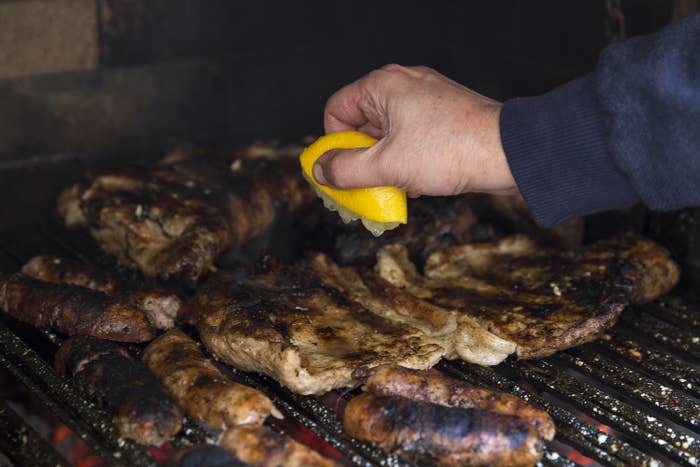
Ideasrojas / Getty Images/iStockphoto
2."My chef told me that I always had to keep my elbows in when I cook, and I didn't really understand it at first. But I always had a messy apron, or I'd burn my arms when I pulled things out of the oven. Getting into the habit of actually pressing my elbows into my center while I cooked helped in so many ways: it stabilized my arms so they wouldn't ever shake, kept me from making sloppy errors, and even helped me avoid getting small injuries. I still do it to this day, 17 years later."
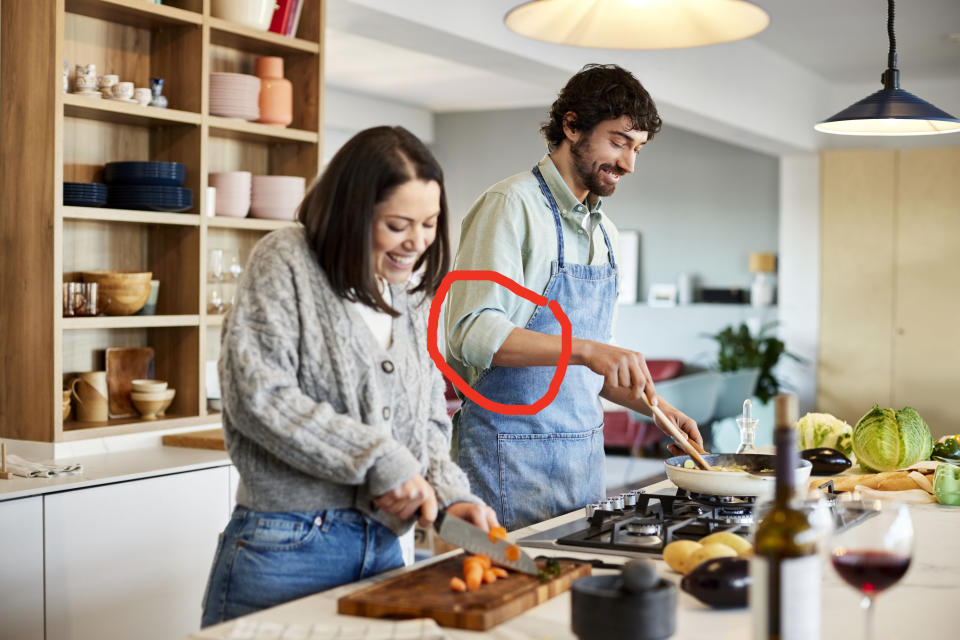
—Anonymous
3."Always, always season liberally. Most things need more salt than the average home cook uses. Chefs are trained on exactly how much to use to make the product actually taste like something — without over-salting. So, if you're a home cook, push yourself to maybe use a little more salt than you normally would. It might make a world of difference in your food."
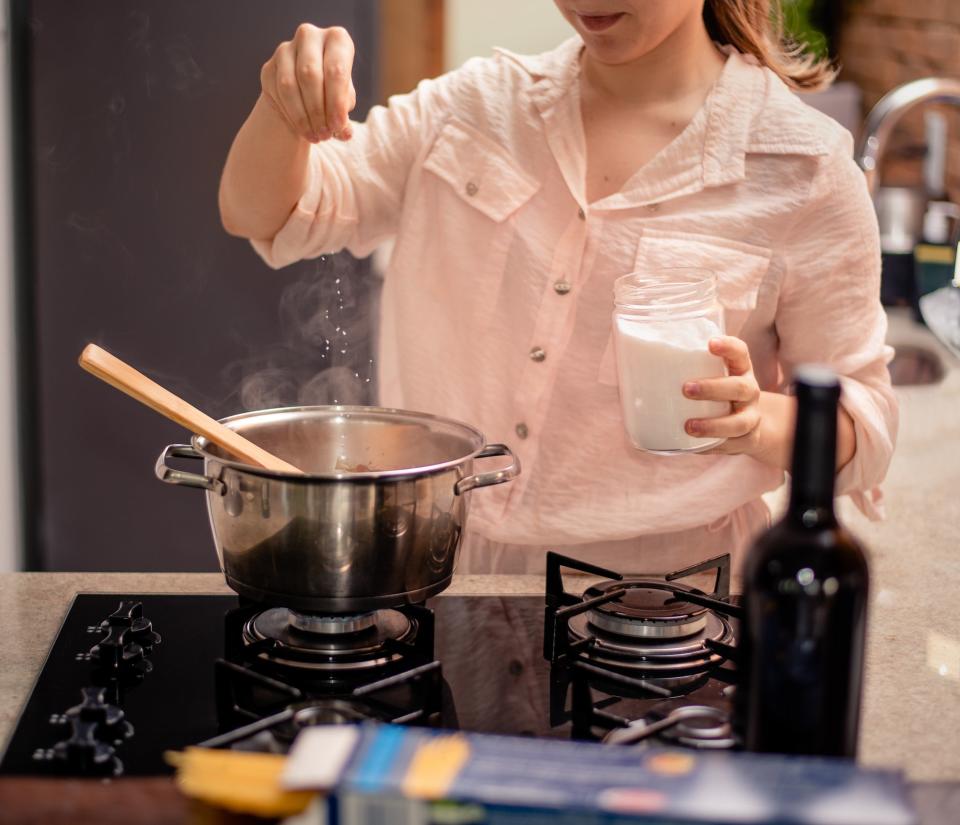
—Lana, 32
4."'Hurry up, slow down.' A pastry chef I worked for used to say it all the time, and it finally caught on. When I'm rushing, I tend to make time-consuming mistakes — jacking up the heat too fast to sear more aggressively, or even spilling and incorrectly measuring ingredients. 'Hurry up, slow down' reminds me that taking the time to do things right the first time usually is the fastest path to success."
NBC / Via giphy.com
—Susan, 45
5."Cooking with softened butter and melted butter yield entirely differently results. For example, grilled cheese. If you butter your bread with softened butter instead of just melting the butter in the pan, you'll get a much more flavorful (and crispy) result. The fat solids emulsified in the softened butter make the bread crispier when it gets toasted over high heat."
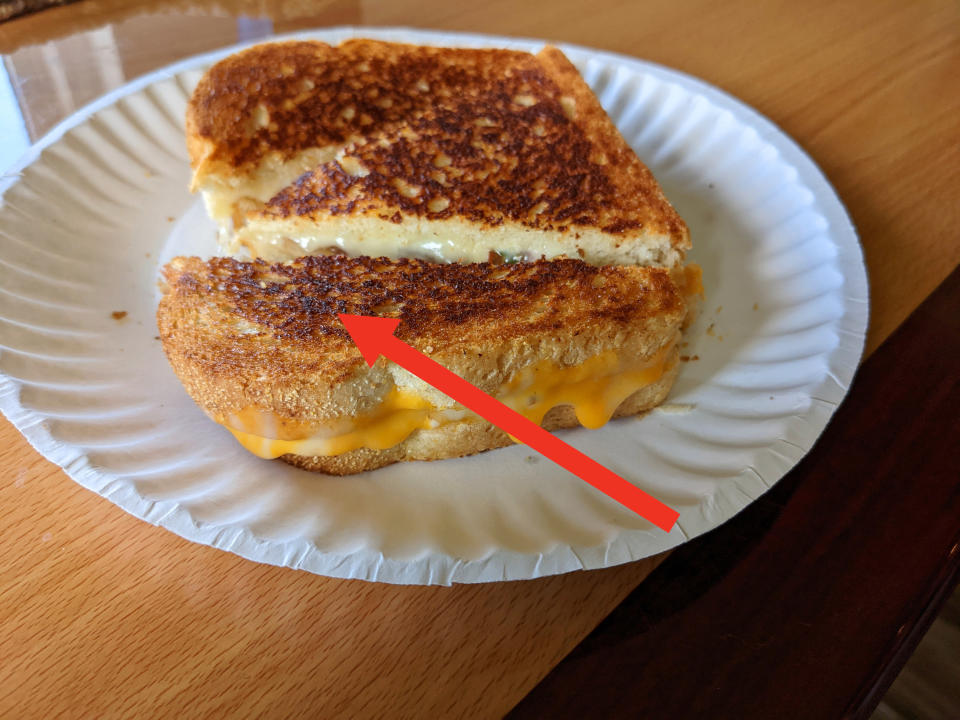
Photo By Cathy Scola / Getty Images
6."Making gravies can be incredibly hard for home cooks. My best gravy tip: Start with a hot roux and slowly whisk in cold milk a little at a time. Never any lumps."
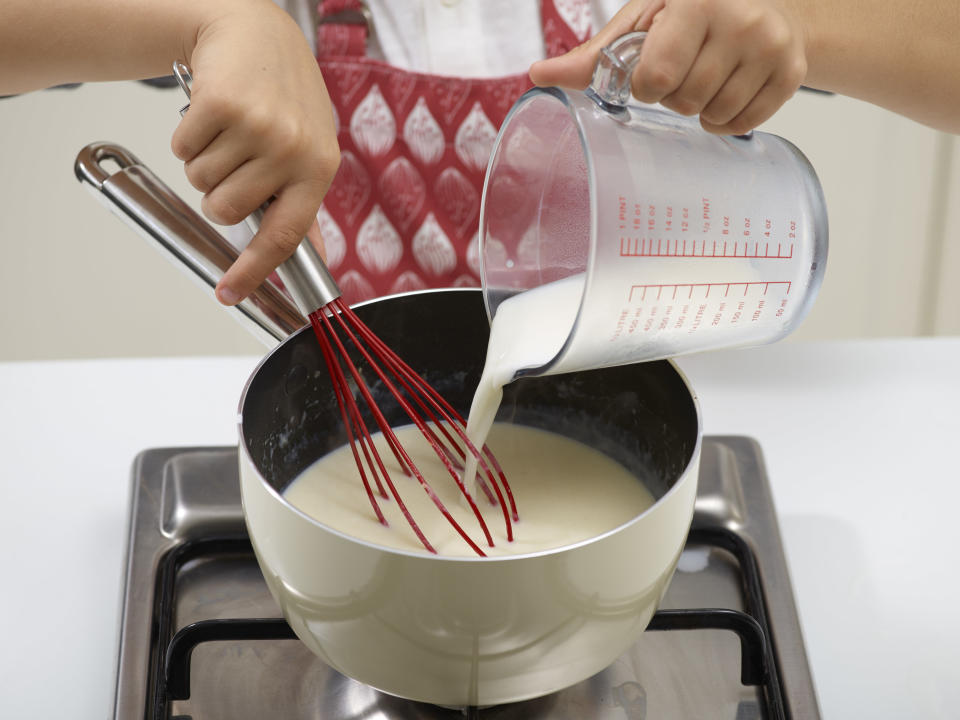
—Anonymous
7."If your cutting board keeps slipping around the counter, put a wet towel or paper towel under it to keep it in its place. It'll make your chopping process much safer than it would be otherwise!"
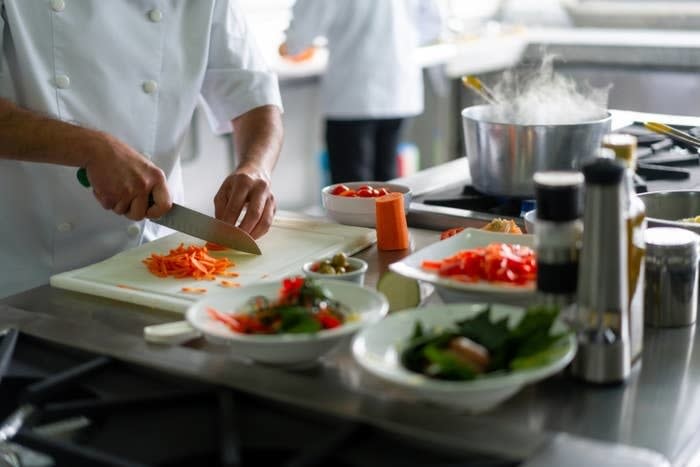
Hispanolistic / Getty Images
8."When you're cooking burgers with any method, make a small dent on the top of the patty (right in the center) with your thumb. When they cook, they'll stay completely flat instead of shrinking and getting very tall in the middle."
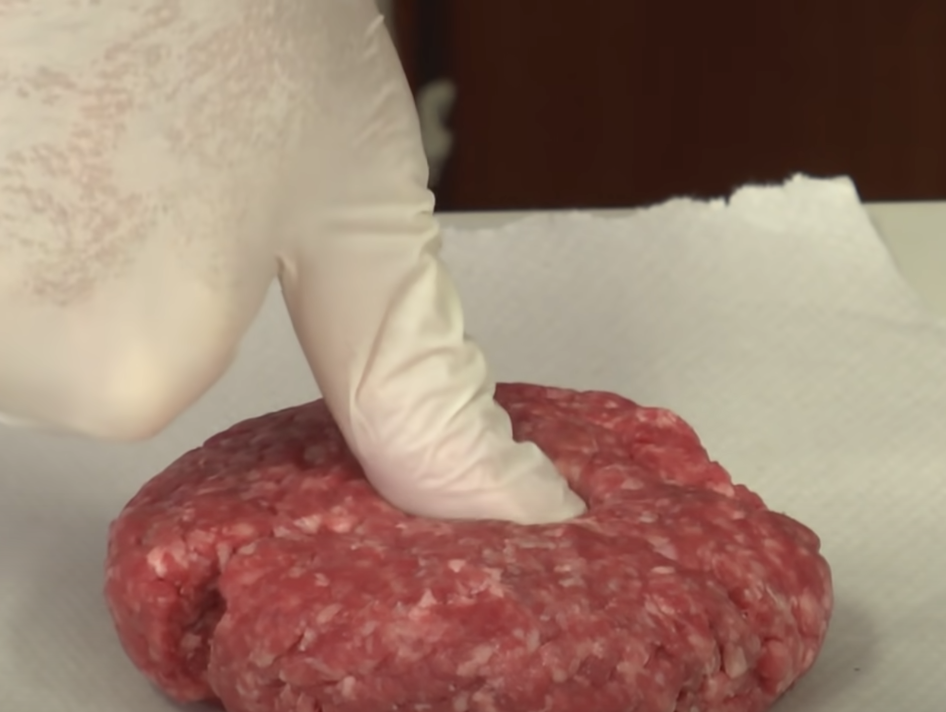
Kojo Nnamdi / Via youtube.com
9."Clean up your station (or kitchen) as you go! You'll become so much more efficient in the kitchen, you'll always have space to work, and you'll have very little cleaning to do when you're finished."
Netflix / Via giphy.com
10."No matter what you're pan frying, don't crowd the pan. Get a bigger pan or cook them in batches, but the reason your potatoes and veggies aren't getting brown and crisp is because they're drowning in their own juice!"
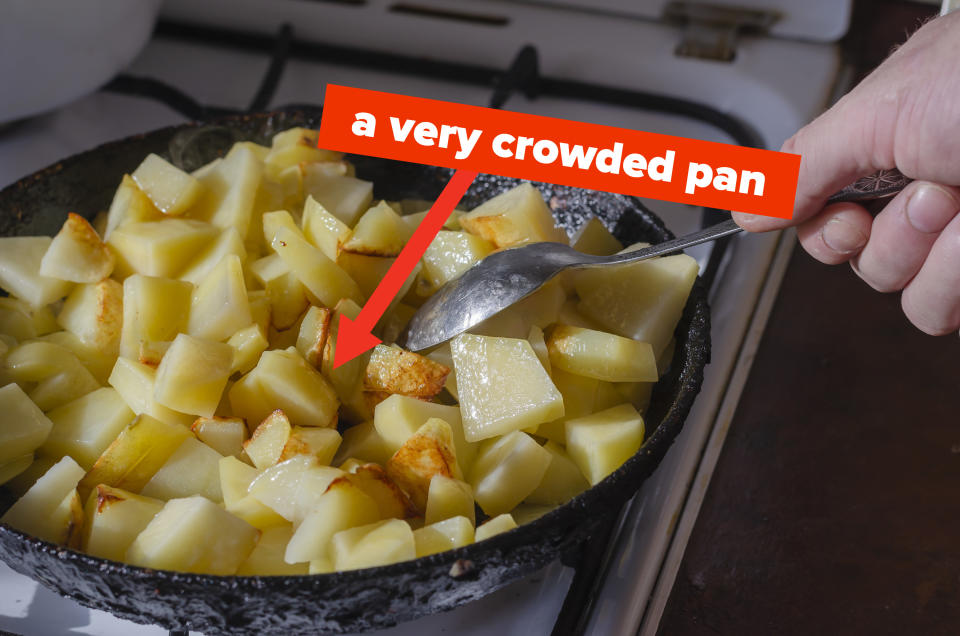
Mikhail Dmitriev / Getty Images/iStockphoto
11."Always taste as you go — and remember that if it tastes good to you, it will also likely taste good to others. I've made mistakes assuming that salt and seasoning amounts in recipes were accurate, when sometimes they're just not. Recipes are works in progress, not set in stone. I always keep a spoon nearby so I remember to adjust seasonings and taste frequently."
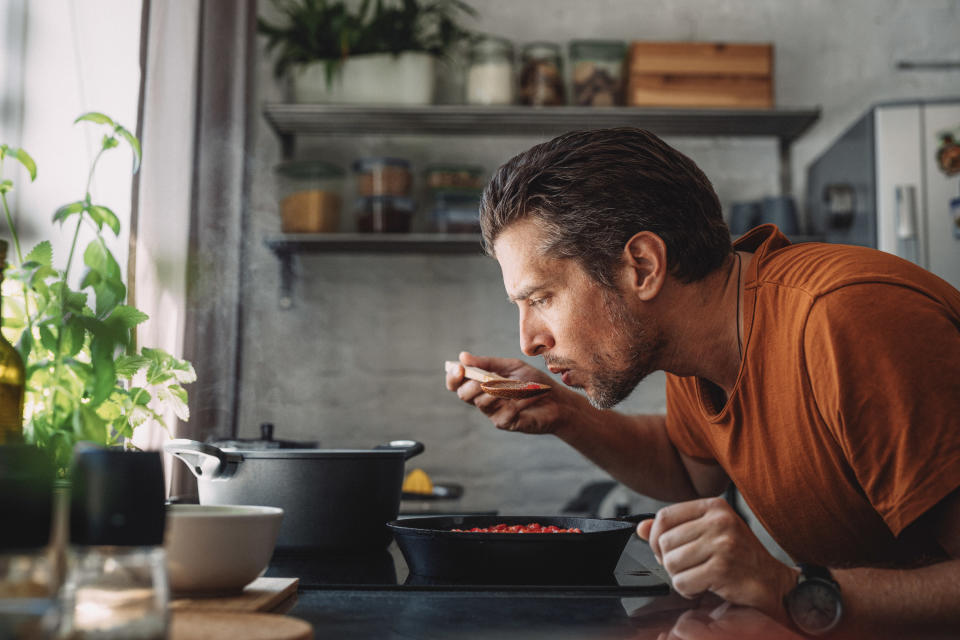
—Vita, 31
12."Salads are hard to make absolutely delicious without lots of dressing, but when you chop up juicy vegetables for a salad — like tomatoes, peppers, or cucumber — salt them before you add them to the salad. It'll remove some of the excess moisture so things don't get soggy, and it'll brighten up the whole salad without making it 'salty.'"
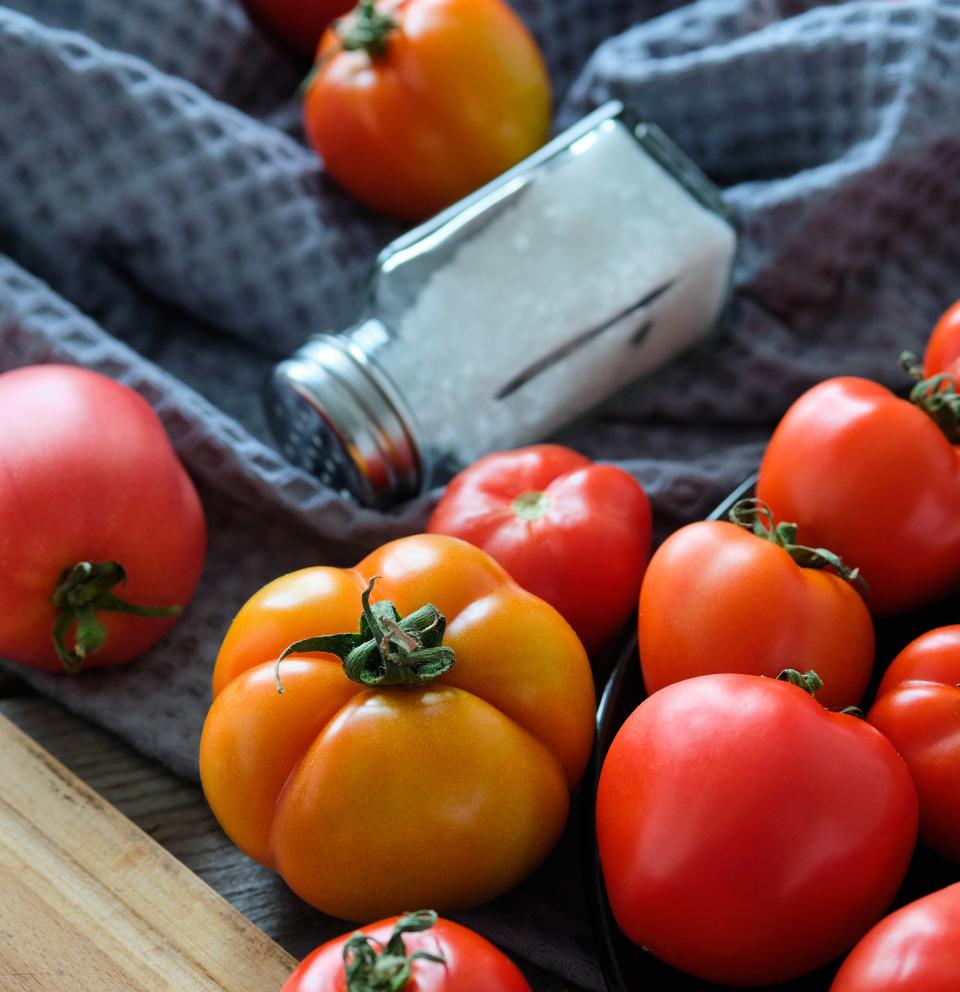
Aleksandr Zubkov / Getty Images
13."Take it from a former breakfast chef: When flipping eggs or making omelets in a sauté pan, use a dollop of clarified butter. The eggs won't stick at all, even in a heavy duty steel pan, and the clarified butter won't burn like regular butter (or most oils)."
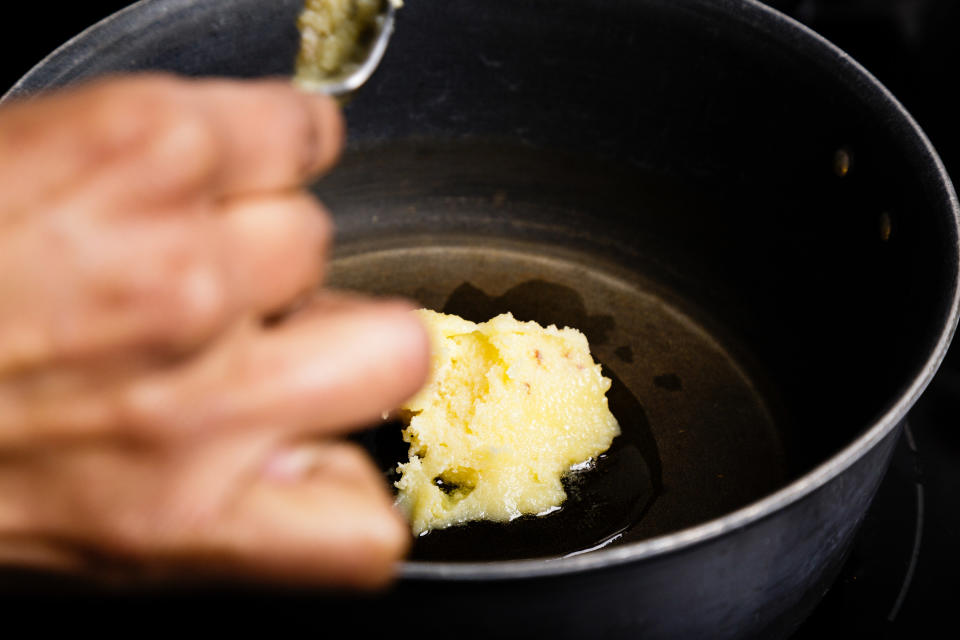
—Steve, 65
14."Season everything. Making chicken alfredo? Season the chicken, season the pasta, and season the sauce. Never assume that one flavor element will permeate the whole dish. The difference between a $1 plate of pasta and a $12 plate of pasta is putting the right amount of salt in the water."
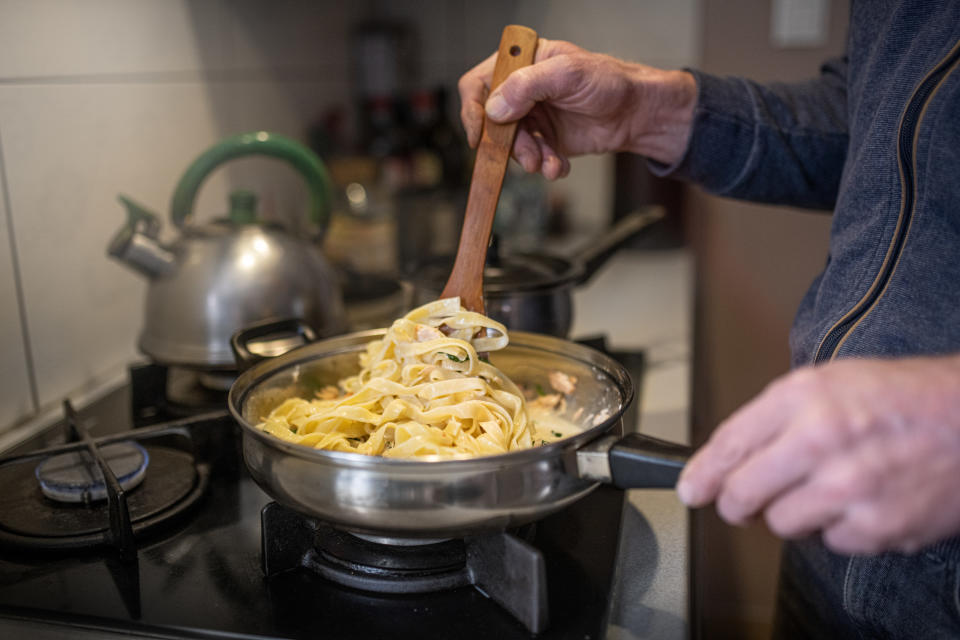
Izalysonarts / Getty Images/500px
15."Ovens are all different, so they cook things at different rates whether you like it or not. Always set the timer to 5-10 minutes less than what's suggested in the recipe to prevent things from burning or overcooking. You can always add time, but you can't get time back!"
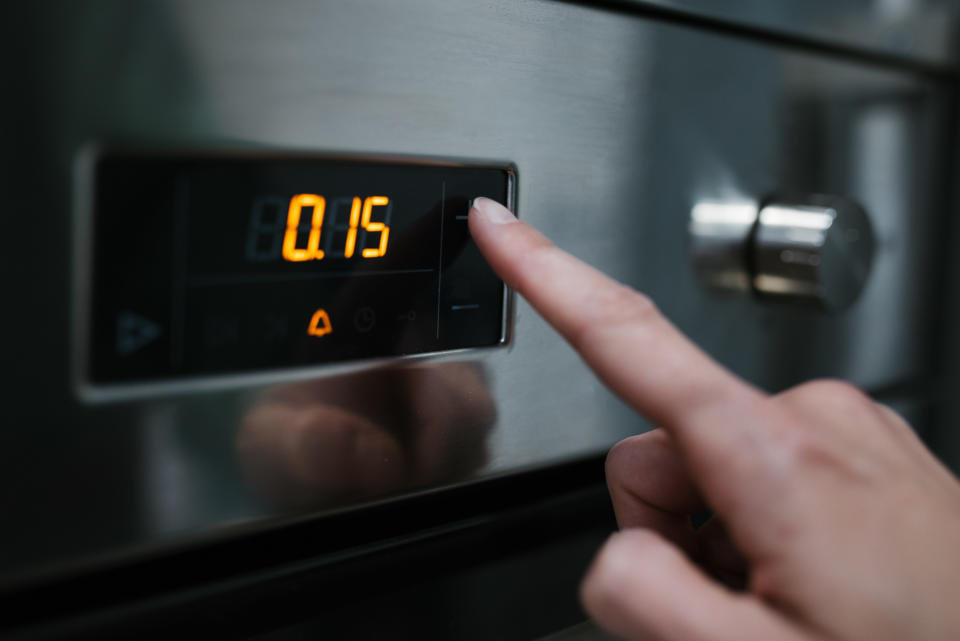
—Amy, 54
16."Always FLIP the knife over before you use it to scrape things into a pot or bowl. Using the sharp side will just dull your blade faster, making the whole process less efficient."
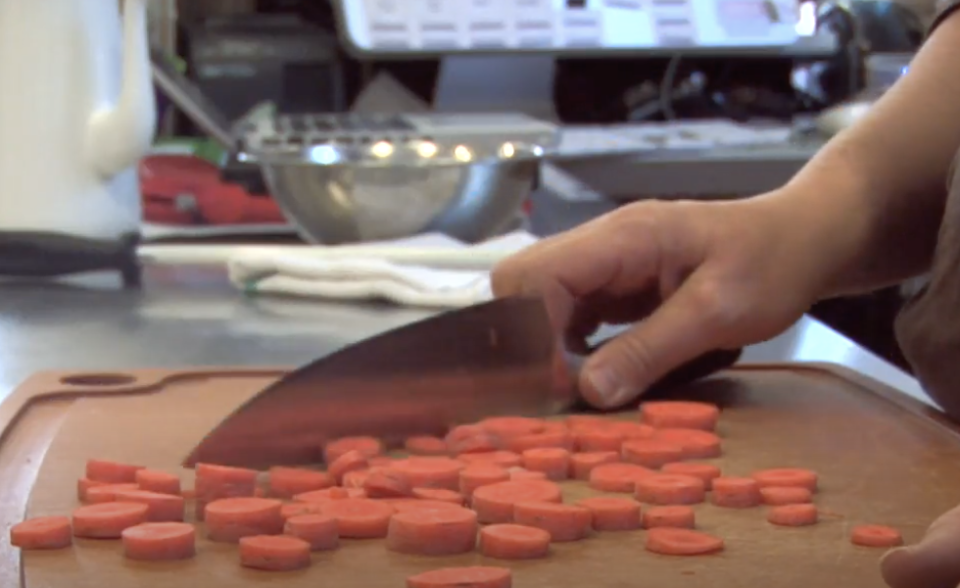
Chowhound / Via youtube.com
17."I learned how important food safety and proper sanitation is. Remember the food danger zone: 41oF to 140oF. Food should never be left out in that temperature range for more than two hours."
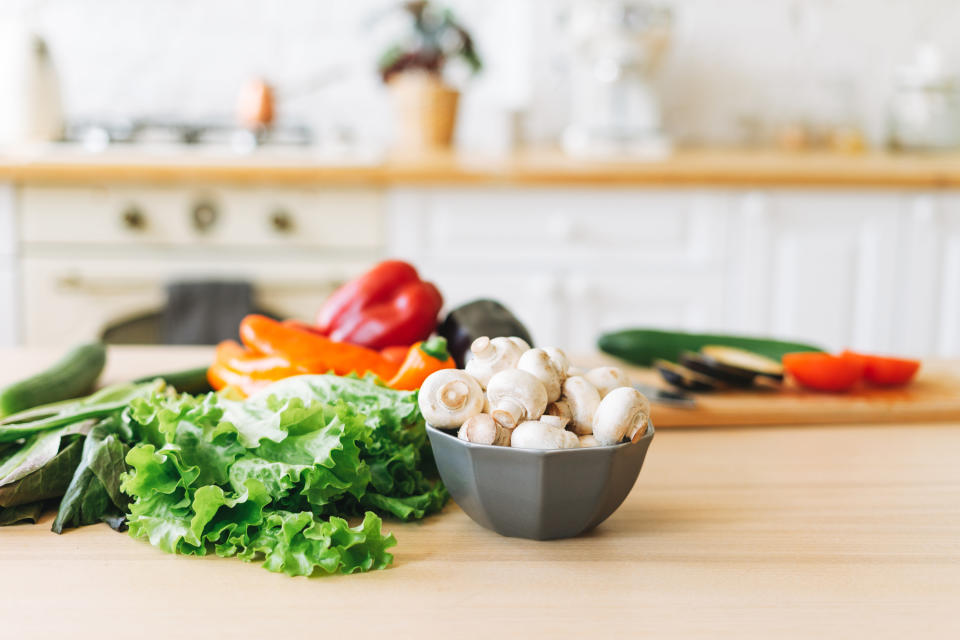
—Michael, 64
18."A good sauce can save almost anything, so learn how to cook at least three quick sauces from memory using everyday ingredients. A red wine sauce (just a cup of wine, butter, onions, salt, and pepper) can turn any dried out piece of meat into a great meal, and a quick marinara that you throw together can taste as good as the sauces you eat at restaurants. Find easy recipes you like, and memorize them."
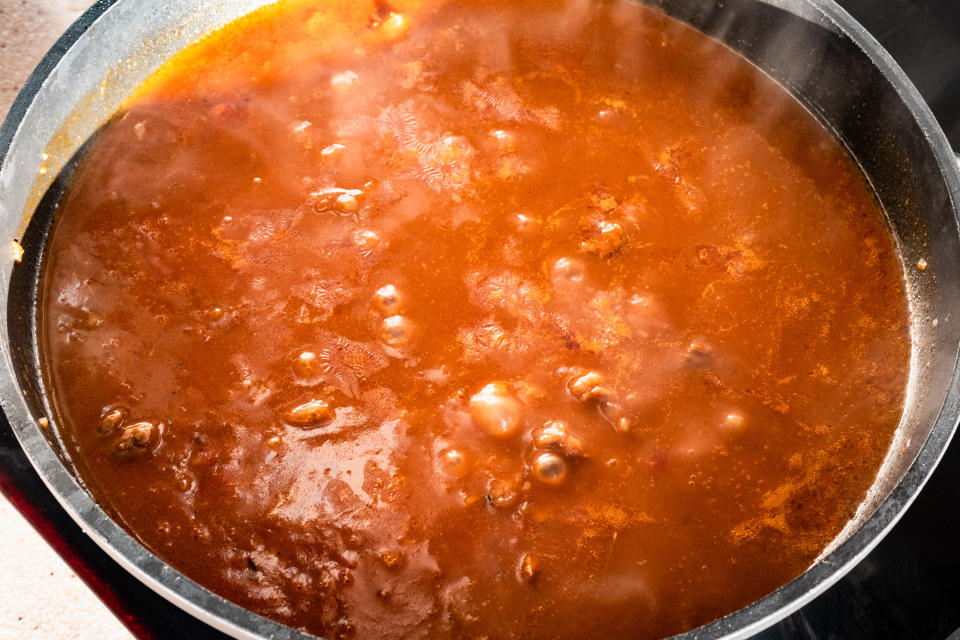
Krimkate / Getty Images/iStockphoto
19."It seems silly, but remember that 'a falling knife has no handle.' Don't learn this one the hard way — DO NOT try to catch a knife that's falling! Just step back, and pick it up once it's on the ground."
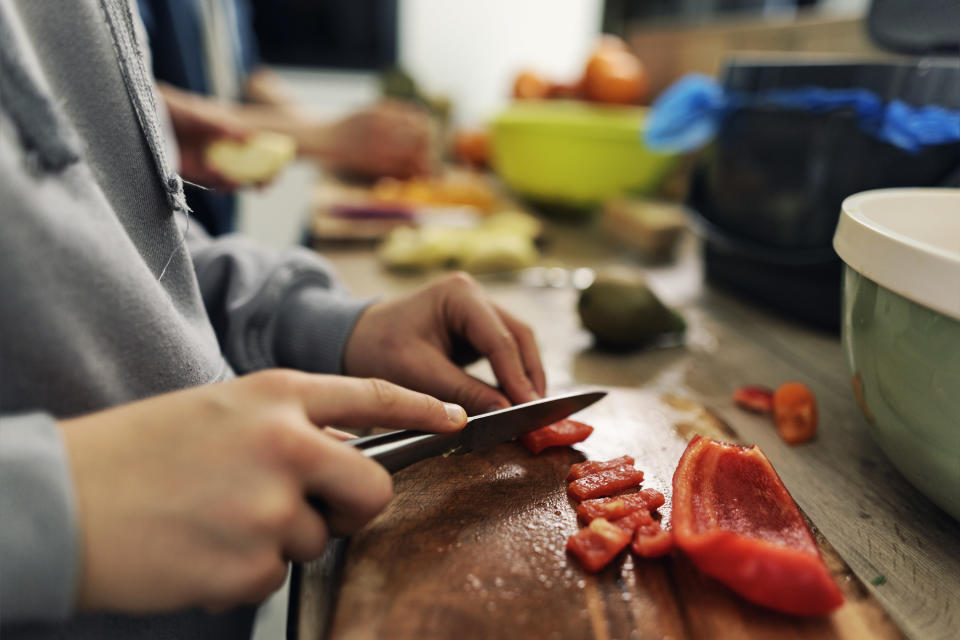
Imgorthand / Getty Images
20."Kosher salt is far better to cook with than iodized salt, and is considered the gold standard in most kitchens. It's also less 'salty' than some other kinds of salts, so it's more forgiving and makes you less likely to over-salt something in the first place."
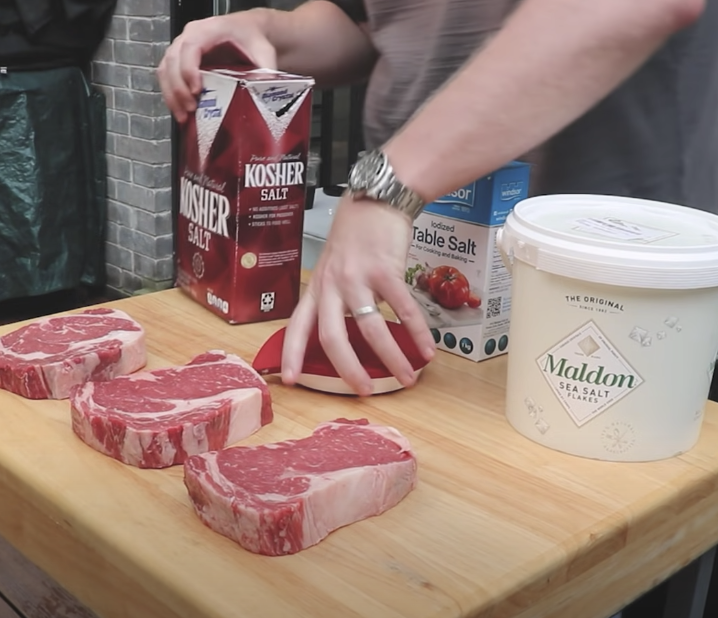
BBQ and Bottles / Via youtube.com
21."Learning proper knife safety and knife skills aren't all about chopping things as quickly or impressively as possible — when you know how to use a knife properly, you'll also save a lot of effort and make yourself far less prone to injuries."
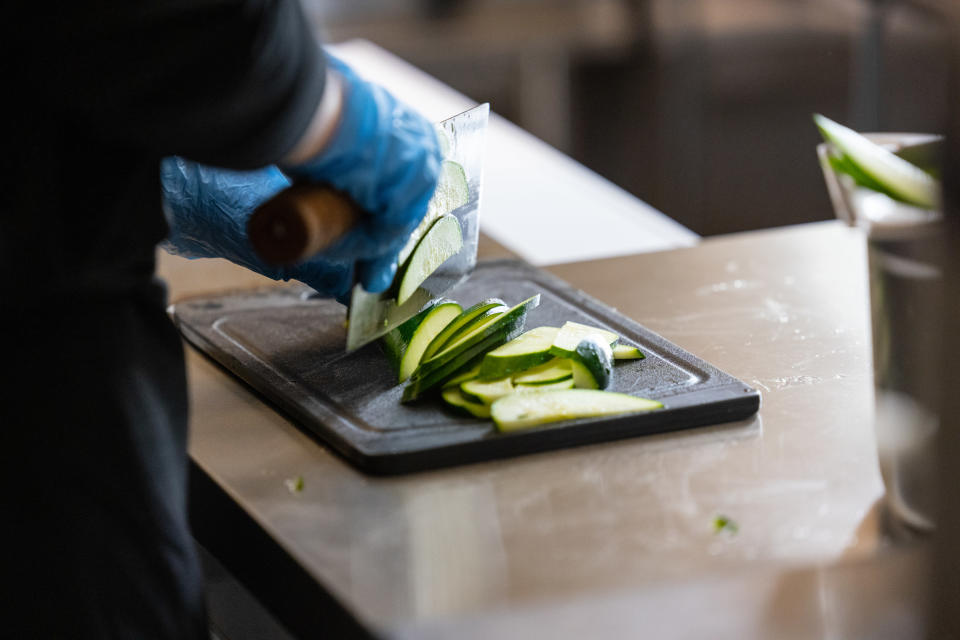
Luis Alvarez / Getty Images
22."It's truly OK to use canned ingredients sometimes, like diced tomatoes and canned beans. I used to be one of those chefs that tried to make every little thing from scratch when I cooked at home, but you'll save yourself a lot of time taking small shortcuts — and it'll taste just as good."
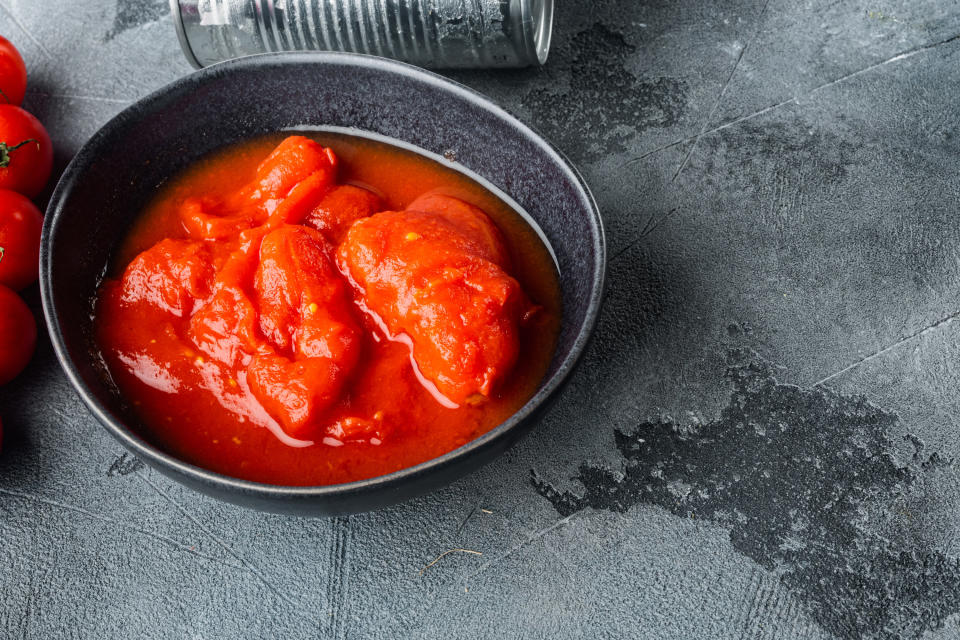
Ilia Nesolenyi / Getty Images/iStockphoto
23."If you're using raw, chopped onions in a dish, soak them in cold water first to draw out some of that bite. It's a really small thing, but it can make a world of difference."
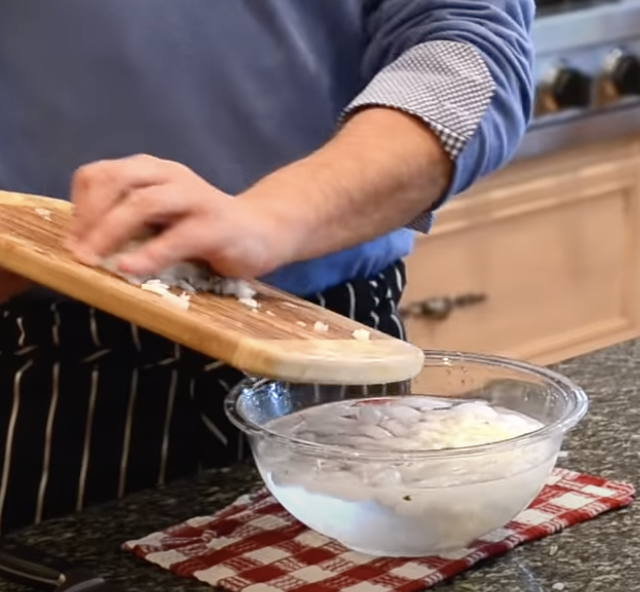
dashrecipes / Via youtube.com
24."Don't overthink your recipes. Instead of trying to make everything as fancy as possible (and use as many impressive ingredients as you can), just learn how to shop for quality ingredients. Food doesn't have to be fancy or complicated to taste good. A simple recipe made with quality ingredients and proper technique is almost always better than being fancy."
MTV / Via giphy.com
25."Nonstick pans are not meant to be used for everything you cook. Invest in a good quality stainless steel or cast iron pan since they heat up (and retain that heat) better than nonstick pans. That said, there's a place for nonstick pans, too — they should be used for items that stick easily, like eggs or pancakes."
"Proper care of any sort of pan is also essential to keeping them at optimal quality, so NEVER douse a hot pan with cold water, and try not to use cooking spray. The propellants in them can actually damage the finish on nonstick pans."
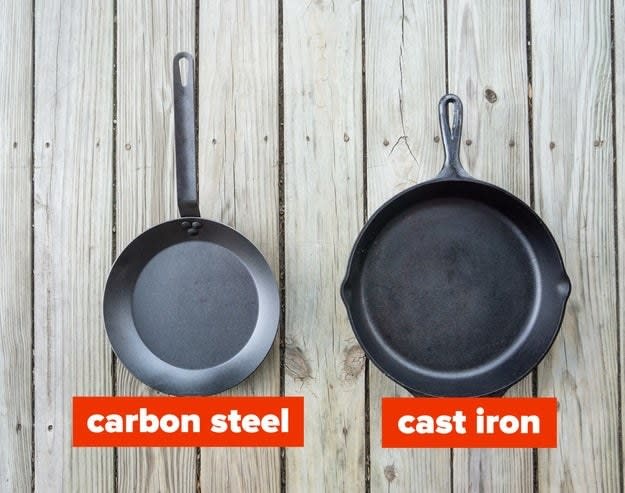
Jd And Kyle Shoot Stock / Getty Images/iStockphoto
26."I went to culinary school and specialized in pastry. If a recipe tells you to 'fold in' an ingredient, just go old school and use your hand — a clean hand, of course. It'll be easier on your arm, and you'll actually be able to feel if everything is getting combined. And since the 'folds' will be bigger, you'll lose less air and volume in the process, too."
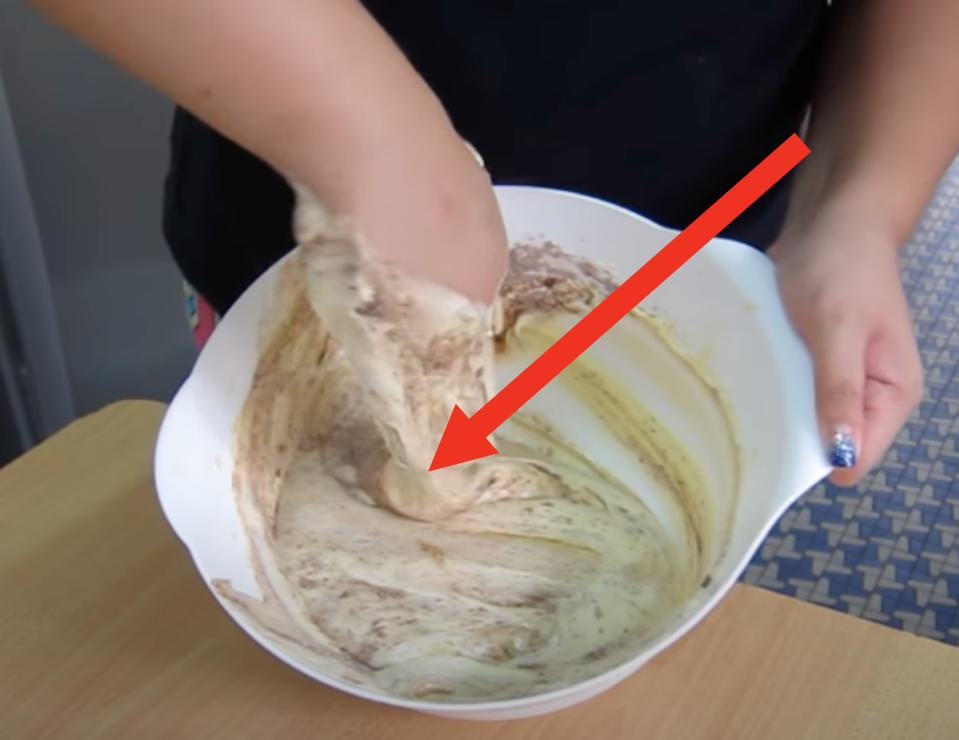
Cynthia Lim / Via youtube.com
27."In the kitchen, a sharp knife is a safe knife. It seems counterintuitive because sharp knives can break skin easier than dull ones, but dull knives are actually more prone to slipping and causing accidents in the first place."
VICE / Via giphy.com
28."I always keep this mindset with me: Think of your culinary skillset like a crayon box. When you first start out, you'll have the chunky 8-pack with just basic, primary colors. As you learn new ways of doing things, you'll add new shades to the colors you already have. This way, you can be flexible and improvise based on the ingredients or limitations you have, since you're never 'replacing' skills you once had — just adding to them. Always strive to be the giant crayon box with the sharpener on the back!"

—Anonymous